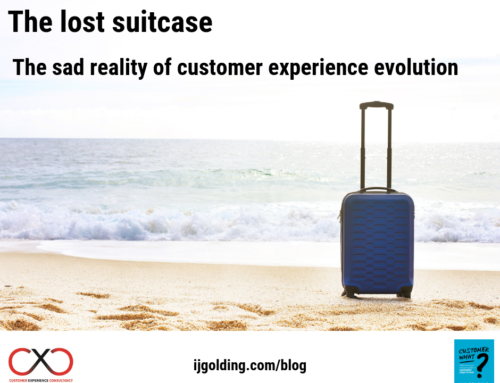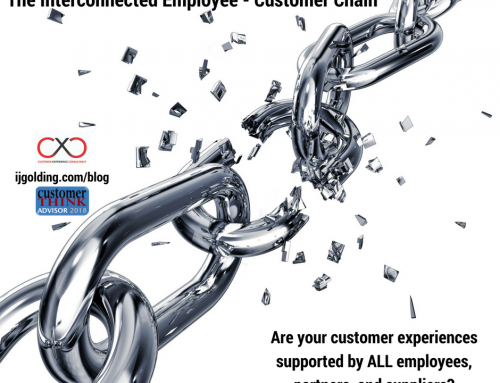
I woke up this morning to see and hear reports about the continuing demise of the British high street. According to the media, up to 30 high street chain stores are closing on a daily basis. These stores are being replaced by pawnbrokers, bookmakers and charity shops. Here is one perspective from the Independent newspaper – http://www.independent.co.uk/news/business/news/goodbye-toys-and-cards-hello-loans-and-bookies-8215751.html
It is clear that the challenges of the economic climate have had a significant effect on changing the face of the British high street. All organisations, whether they be in retail or not, are having to assess the effectiveness and feasibility of their operations. A cost focus has meant that underperforming parts of organisations have had to be streamlined – for a retailer, regrettably this means that their ‘footprint’ has had to be reduced where possible.
So exactly what are the causes of this – can it all just be blamed on the economy? In my opinion, the causes are as follows:
1. Spiralling business rates – this is definitely a significant economic factor. I live in Chester in the North West of England. The business rates (so I am led to believe) are exorbitant. For those of you who have been to Chester, it is a historic town with a very historic shopping centre with the world-famous ‘rows’ – a two tier high street (see picture below). The ‘rows’ used to be bustling and full of individual specialist retailers. It was wonderful. Today, not only are many of the units empty, those that are occupied are occupied by national chains that can still make the Chester stores work. Why? individual retailers simply cannot afford the rates – big out-of-town supermarkets and a huge outlet village have made the consumer think twice about where to do their shopping. If the town centre offers nothing ‘different’, why bother going……this leads me on to my second point….

2. Car parking – the bane of any shoppers life. Not only is it difficult to find somewhere to park, when you, you are expected to pay through the nose for it. Chester have implemented a ‘free after 3’ parking policy in some car parks. Personally, I will only visit the town centre when I know I can park for nothing. The policy works – but what about the rest of the working day. The consumer now has more choice than ever before. They can visit the big supermarkets or the outlet villages and park for nothing – anytime. They can literally buy anything they want from anywhere in the world from the comfort of their living room. Why would you pay to park in the town centre that offers nothing different? This leads me on to my third point…
3. Where is the WOW? More than ever before, consumers want an experience – a positive, memorable experience in everything they do. Recognising that fact, one needs to question what kind of ‘end to end’ experience do many of our high streets now offer? The experience starts with being able to access the high street (parking, walking, public transport etc..) and ends in much the same way. In the middle are a number of elements that make up the full end to end ‘customer journey’. What kind of journey does your high street offer you? Today it is not great – queues of traffic to get to overpriced car parks. You then walk past empty shops and often dirty streets. You might be able to dine in a fast food restaurant before walking past a gang of youths on street corner to get back to your car before the parking ticket runs out. I am being a bit extreme here, but I am guessing you get the point.
A customer experience specialist in the US, Bruce Temkin, once taught me that there are three elements to any experience:

When you think about these elements for the high street, it does make it clear why there is a struggle. Is the British high street functional any more? Does it provide the basic things that the consumer wants? Is it accessible? It is certainly not as accessible as other options now available to the consumer. And the third one is the key one – how does shopping in the high street make the consumer feel? What is the emotional connection with the consumer? What is the consumer going to remember about their day out?
I think it is pretty clear-cut why the high street is suffering. The only way to help address the issues is for the key stakeholders to start working together – central and local government; retailers; local people – unless the high street can start to compete from a functional and accessible perspective, the only emotional element of the experience that the consumer will remember is not likely to be positive.
As always, I welcome any comments on this or any other of my blogs.






[…] I’m not paying to park! Why the British high street might be struggling. […]
Very good points well made.
Our local town has plenty of parking but you have to pay for it and as it is pay and display you always have that “how long do I need” question followed later on by “I can’t go in that shop as I need to get back to the car before my parking runs out”.
One of the office blocks next to the highstreet used to donate their carpark on a Saturday for the use of the local Lions charity to use and sell parking. There was always somebody there that gave you a slip with your entry time, you did your shopping relaxed and then when you returned they checked your entry and exit times and you paid the amount based on your time. They charged the same as the council but it was more relaxed and we found we shopped, had a coffee or lunch and spent more time in the town as we did not need to rush back to the car. Also, as it was a charity we tended to round the bill to whole coins for them.
Unfortunately for what ever reason the charity no longer does this (rumours are that the council complained it was taking away their revenue so stopped it with some HSE loophole) and so we are back to dreading having to go into town again.
Such a shame. Out of Town and Internet wins again!
Agree wholeheartedly. I just wish the message was getting through to local councils, many of which really don’t understand the principles of supply and demand that are second nature to retailers.
The theory about parking charges seems to be that they’re making good use of a resource i.e the people who want to come to shop in a popular town. What they don’t seem to appreciate is that by pushing the cost beyond a certain point they reduce the number of visitors who will be saying “I’m not paying that!”.
Those that are unwittingly caught out, either by a high charge hey weren’t expecting, or by overstaying and being hit with a parking ticket, will only have bad feelings about the town/city they visited. Not only will they not come again themselves, but they’ll tell freinds and anyone who’ll listen that the parking in that place is a ‘rip off’. I’ve heard exactly that phrase a number of times in Oxford city centre when I’ve been paying for my parking.
It’s a corrosive policy and only serves to diminish the attractiveness of once busy towns and ruin the reputation that may have been hard won by local businesses. The really daft thing though is that in the long run it’s not even an effective revenue raising exercise as visitor numbers tail off. Problem is, by the time councils accept the damage they’re doing it’ll likely be too late to reverse it.
A thought provoking piece as always Ian. However, I believe you have missed THE most important cause of the demise of the high street – Internet shopping. Comparatively, the experience of obtaining goods from the comfort of your own home in a safe, secure manner has led many people to shun the high street in favour of an online experience. We’ve all heard of Sartre’s phrase ‘Hell is other people’ and it’s no more apparent than squeezing your way through crowds of screaming children, hoodies on bikes and obtrusive pensioners only to be met by a surly ‘emo’ glaring at you when you reach the counter. I know I sound like a commentator on ‘Grumpy Old Men’, but it’s not just me – even my wife, an avid fan of the high street, has in the past few years turned her back on the doyens of retailers and now prefers to keep Amazons share price in good spirits. And as for my children, well it just simply scares them whenever it’s even suggested that we’re going near a high street shop.
I’m a real believer that customer experience, whether its B2C or B2B, is driven by options – if you have the choice to choose a better experience, you’ll instinctively lean towards it. The death of the high street could have happened decades ago if the internet would have got its skates on – we were all waiting for something to free us from the drudgery of it. So, although I lament the days of being able to pop into a nice little independent shop for a browse, I think I may have rose tinted glasses on. It’s never been that great and we’ve all become too damn lazy to care where we get our stuff from – as long as it’s a good price, delivered on time (when you’re in) and it’s not damaged when it arrives. Now that’s shopping.
Indirect government incentives have a huge role to play in the demise of the bricks and mortar retailers. VAT loopholes have allowed online only businesses such a play, amazon amongst others to have an immediate large margin benefit by being based outside of the UK. This margin allows for prices to be reduced and drive what are commodity purchases down to a level that at a unit basis a bricks and mortar retailer cannot make money on. Other than the large multiples such as asda that can use them as loss leaders to drive footfall for basket spends on other items. I believe that consumers and I use the term consumers rather than customers make their purchasing decisions based on price, then convenience. My partner and I as an example bought a range of films and cd’s as christmas presents this year. We scoured play, amazon, asda online and made purchase decisions based on pennies as the fulfillment of these orders are largely managed by the same logistics businesses that all offer a similar service. Until the government starts implements tax regimes that targets distribution, logistics and overseas exports into the uk then the demise will continue. My bets are WH Smiths, Rymans and possibly Argos are at risk.
Enjoying the blog.
[…] The causes of high street strife have as a result been discussed in-depth and at great length. Exorbitant business rates, parking charges, lack of collaboration, changing consumer behaviours and online shopping are amongst the major causes of decline. A few months ago I wrote a blog post on the very subject – https://ijgolding.com/2012/10/18/im-not-paying-to-park-why-the-british-high-street-might-be-strugglin… […]
[…] I’m not paying to park! Why the British High Street might be struggling (October 2012) – https://ijgolding.com/2012/10/18/im-not-paying-to-park-why-the-british-high-street-might-be-strugglin… […]
[…] I’m not paying to park! Why the British High Street might be struggling (October 2012) – https://ijgolding.com/2012/10/18/im-not-paying-to-park-why-the-british-high-street-might-be-strugglin… […]
[…] I’m not paying to park! Why the British high street might be struggling […]